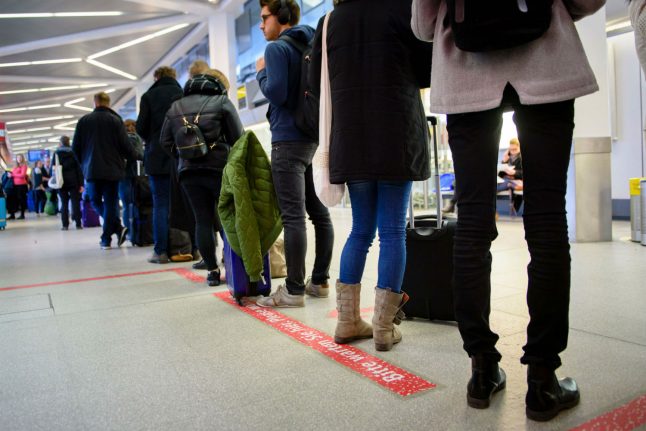What is the strike about?
The call to strike was made by union Verdi, which has demanded a pay raise of one euro per hour for ground staff with work contract terms of at least one year. Currently ground crew members earn on average €11 per hour.
The union has been negotiating with a group representing companies that provide ground transport services to airports. The employers' group on Tuesday offered a pay raise of 8 percent over the course of three years, but the union rejected this proposal.
Is my flight affected?
Practically all flights into and out of Berlin’s airports on Friday have been cancelled. At Tegel airport in the north of the city, 455 flights were called off, while at Schönefeld airport 204 flights were cancelled.
The strike started at 4am on Friday morning and is set to last until 5am on Saturday, with the airports warning passengers to expect delays after the strikes end too.
You can check the latest on your flight here.
Is this a one-off?
Unfortunately not.
Verdi already held strikes last month at Berlin, Hamburg and Stuttgart airports amid the ongoing labour negotiation dispute.
More than 100 flights were cancelled at the beginning of February during strikes, and dozens more were cancelled during another round of strikes that month.
According to Berlin daily Tagesspiegel, things are about to get a lot worse. Verdi will avoid rolling strikes so as not to risk the courts stepping in to block the action. Instead they plan to call single-day strikes repeatedly over the next few weeks, only announcing them days beforehand.
Tagesspiegel expects the next strikes to be called early next week.
Am I going to lose money?
You could well do.
If you are flying with Lufthansa, Eurowings or Air Berlin, you are in luck. These airlines have a deal with Deutsche Bahn (DB) allowing you to convert your plane ticket into a train ticket for the same day. DB have said they may put on extra services to cope with the burden on their already full Friday evening services.
But many of the budget airlines – including Ryanair and Transavia – offer only a refund or the chance to re-book at a different time, meaning that if you need to get somewhere on Friday, you’ll end up forking out a lot of money for an alternative means of travel.
What do airlines have to cover?
Unfortunately for you, the airlines aren't legally obliged to cover the costs of your replacement ticket.
Compensation is complicated by the fact that the airlines aren't involved in the industrial dispute, which is between ground staff and the private companies which run operations in the airport.
Boris Narewski, a specialist in travel law, explained to The Local that air companies do have an obligation to get you to your destination, but that they aren't obliged to do it on the same day.
“The fact is, it's not possible for them to take you to your destination when both airports in the city have been completely closed down by strikes,” he explained.
The upshot of this appears to be that getting a flight on a different day is about the best you can hope for.
Eva Klaar from the Consumer Rights Centre explained, though, that airlines do have some obligations.
“If they are flying you out of Germany instead via Hanover, Leipzig or a different German airport, they have a responsibility to pay your travel costs to get to these airports,” Klaar explained.
She added that, in case people end up being stuck in Berlin for another day, the airlines have to carry the costs of a hotel, food and travel between the hotel and airport.



 Please whitelist us to continue reading.
Please whitelist us to continue reading.